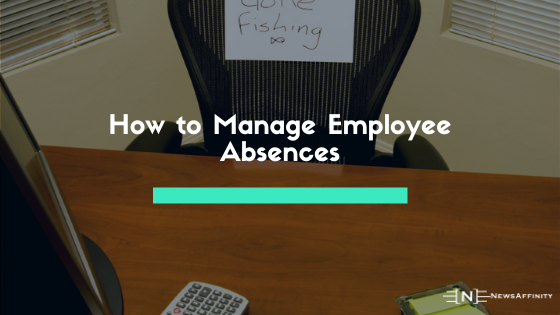To make sure your business is running smoothly, and that productivity is kept to a high standard, your team must be working together effectively. Although sickness and personal problems are all valid reasons for an employee to be absent, if they are spending too much time away from work this can cause various issues. Their absence puts greater pressure on the rest of your staff as they have to pick up extra work to meet targets and goals. In turn, this pressure can grow into resentment if one or two employees are regularly absent.
Therefore, it’s so important to effectively manage employee absences to help keep good morale and balance in the workplace. Here are some ways you can do this.
Keep a Record
All absences should be recorded and the reasons behind it. You can manually input these records onto a computer system or keep a written diary, but for a more efficient way, consider finding quality ERM software solutions. This will help you keep a more thorough record of employee absences and be able to identify any concerning trends that appear. These records will be important to have at hand in any HR meetings that may have to occur to discuss excessive absences, etc.
Create an Official Absence Policy
It’s universally understood that if you are calling in sick to work regularly, this could lead to disciplinary action or dismissal. However, without having an official policy in place for your employees to read and understand, it does make it easier for people to take advantage of the system. Create a concise absence policy that you present to all employees so that they understand what will and will not be tolerated. Make sure that you enforce this policy and that your staff takes it seriously.
Don’t Ignore Potential Problems
If you are noticing that an employee is taking a lot of time off work, don’t ignore it. You must get to the bottom of the issue and find out if they are struggling and need any extra support from you. Many people might be struggling with personal issues or ones in the workplace which is why they keep calling in sick. These must be addressed.
Take Disciplinary Action
If your initial conversations about absences haven’t made an improvement, you may have to start taking more serious action. If an employee is taking too much time off work and failing to provide doctor’s notes or other evidence, you should begin to hand out warnings. They need to know that this behavior will not be tolerated and the rest of the team will appreciate the issue being addressed properly.
Incentives
Finally, making sure that the morale in the workplace is high is another way to encourage employees to come to work. You might want to consider using incentives based on employee attendance to keep absences low and make sure that your employees feel appreciated for their hard work.
To avoid excessive absences amongst your workforce, try these tips to help manage the problem.

















Comments